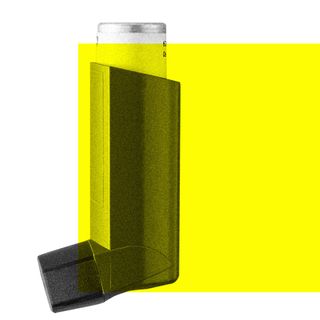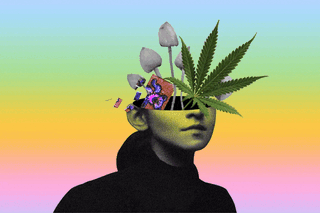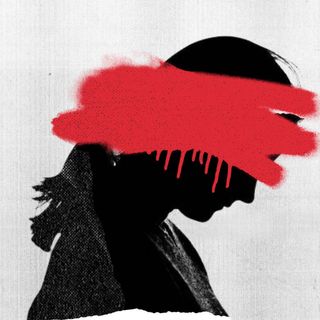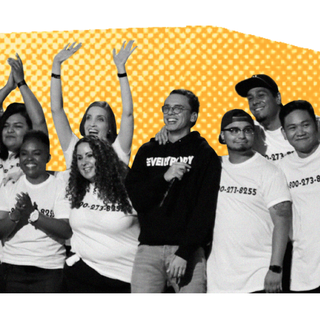
Many Indians Are Experimenting With Psychedelics, Other Drugs to Deal With Mental Health Issues
The stigma around drugs in India also impacts how some mental health professionals perceive drugs, and prevents people from being honest with their therapists about using them.

“I was depressed and heartbroken: the perfect combination for the experience,” Vivek Gopal wrote, explaining why he chose to consume ayahuasca in a ritual that was described to him as “therapy through throwing up.”
Ayahuasca is a bitter brew known for its psychedelic properties. One of its active ingredients is DMT, or N-Dimethyltryptamine, which is also called the “spirit molecule” for the powerful hallucinogenic trips it induces. Just last year, regulators in the U.K. approved it for trials as a treatment for depression.
“[It] breaks up all of the ruminative thought processes in your brain — it literally undoes what has been done by either the stress you’ve been through or the depressive thoughts you have — and hugely increases the making of new connections,” Carol Routledge, chief scientific and medical officer at Small Pharma, a company involved in the trial, told the press.
According to Routledge, in combination with therapy, DMT has the potential to treat disorders like PTSD, treatment-resistant depression, and even some types of substance abuse. “The [psychotherapy] session after [the hallucinogenic trip] is the letting-things-settle [bit] — it helps you to make sense of [your] thoughts and puts you back on the right track,” she says.
However, for many Indians — like Vivek, his friend Kaushik, and numerous others — the trips are neither supervised by mental health professionals, nor followed by therapy.
I., 26, too, talks about experiencing “therapeutic trips” through magic mushrooms. Having tried it about four times, she says it helps her “go back to episodes from the past… [and] sort of change the narrative or get some closure from those episodes.” Explaining why that’s important to her mental health, she says, “These episodes are the most likely causes behind the panic attacks, sleep deprivation, and mild anxiety, among other things, that I live with.”
Indians aren’t alone in using drugs to treat mental health conditions though. According to the 2020 Global Drug Survey, people from across the globe are using banned substances as “an underground self-treatment” to “treat psychiatric illnesses and emotional distress.”
This sounds like “self-medication” — although that sounds like a rather absurd descriptor for the phenomenon in the context of India, where drugs are so aggressively stigmatized by the media that it’s highly unlikely mental health professionals are ever going to include them in treatment options, leave alone treating them as “medication” at all.
Related on The Swaddle:
Don’t Imprison Recreational Drug Users, Advises Social Justice Body
But why are so many people opting for banned substances over drugstore medicines that exist for the purpose of treating mental health disorders? According to the global study from March, “there are many people with common preexisting conditions for whom existing treatment modalities are either insufficient or unattractive to engage with.”
Felix*, 30, who lives with ADHD and struggles with executive functioning and processing-related issues, says that micro-dosing LSD has been “wonderful.” It began when “[I] accidentally ingest[ed] a small amount and skipped my amphetamines.” Now, he prefers the former over his prescribed medication. He’s careful about the usage though. “I tracked sleep, maintained a journal, and kept check of my diet. Apart from the tolerance issues and sourcing, things were mostly fine,” he said, adding that with time, he was also able to figure out the right dose for himself.
In India, perhaps, the dismal mental health professional-to-people ratio also contributes to the rise in people self-medicating with banned substances. Besides, medication for mental health is shrouded in stigma and perceived as a sign of weakness or a “quick fix” to avoid “manning up” and dealing with one’s problems. Although drugs are heavily stigmatized too, pop culture has also made them appear “cool” — and, of course, they are a forbidden temptation of sorts too.
Further, Rhea Gandhi, a psychotherapist, explains that the ethical way to start with any form of psychiatric medication, is to get a diagnosis first and then have a mental health professional evaluate whether a patient needs medication at all, and, if so, what the right dosage for them should be. The process, however, may seem cumbersome to many — especially compared to the relatively easier availability of, say, marijuana.
Gandhi explains that for people living with ADHD, for instance, smoking hash might feel like it’s helping them slow down and focus better — making it seem like a better alternative than jumping through different medical hoops to ultimately access medication.
What makes ADHD as an example especially relevant in the context of self-medication is that the condition — much like its neurodivergent “cousin,” autism — can often go undiagnosed as a result of being buried under layers of masking, as well as stereotype-based biases among mental health professionals about how neurodivergence manifests. The subreddit “r/adhd” is inundated with anecdotes from people who were refused a positive diagnosis because they are “successful” or did “well” in school while growing up. But being undiagnosed doesn’t, of course, mean one’s life isn’t impacted by either their neurodivergence, or any mental illness they may be living with.
“One [doctor] said I couldn’t be autistic because I had recently had a baby, which was proof of a good sex life. Another one asked my husband if he wanted to leave me. When he said while I did have my struggles, he was happy with me — I was dismissed by the psychologist. Yet another one said I spoke so well that I couldn’t be autistic,” says Rakshita, 33, who received her formal diagnosis this year. Before that, she had chosen to settle for a self-diagnosis after facing disbelief and rejection from almost 10 trained professionals. In a world where just the diagnosis itself for different mental health conditions seems like such a colossal challenge to overcome, prescription drugs can be a far cry.
According to some experts, the pandemic may also have contributed to the rise in drug usage across the globe. “Maybe micro-dosing was the ‘baking of the drug world’ for lockdown because some people saw this as an opportunity to trial micro-dosing and may have had the chance to see the impact on work, performance, and creativity with more time away from the office,” Dr. Adam Winstock, a consultant psychiatrist and addiction medicine specialist at University College London, told Vice News. “Psychedelics are really versatile drugs. I can imagine for some people, bigger doses may have allowed them to work through anxieties the last 18 months have raised for all of us,” Dr. Winstock added.
Related on The Swaddle:
Stigma Against Addicts in Recovery Slows Down Their Progress: Study
Despite the drugs having positive effects in the treatment of mental health issues, indiscriminate usage might still be harmful. However, the stigma around drugs in India, which impacts how several mental health professionals perceive drug usage, prevents people from opening up to their therapists about using them.
Gagan*, 30, was never able to bring up his experience of using magic mushrooms with his therapist “out of fear of judgment.”
Like Gagan, Z., 28, also hesitated to disclose his LSD usage to his therapist because he was worried she would “disapprove.” To gauge her reaction, he mentioned his “friends” had tried the psychedelic “once” and “felt better [mental health-wise]” following the trip. She reacted by telling him to get his friend “help” by checking him into rehab since “‘these type’ of people are a menace to society.” Naturally, he never brought it up again because her reaction proved his fears about being “perceived as a junkie, as some kind of a negative element of society, who needs to be isolated in a mental health institution, or a rehabilitation center” were true.
Daya*, 23, on the other hand, chose to be open with her therapist. Unfortunately, this resulted in her therapist attributing all her mental health issues to her drug use even though she was using them as a “crutch” to help her navigate the world, which had been rendered difficult due to her declining mental health. In fact, ever since she mentioned using drugs, her therapist kept bringing it up uncomfortably often until the feeling of being constantly judged, among other things, made her decide not to see the same therapist again.
At this juncture, when more and more people are increasingly gravitating towards self-medicating with psychedelics and other drugs, Gandhi believes it’s important for mental health professionals to be able to extend a non-judgmental ear to their patients or clients. She recommends a “curious approach” when a client opens up about using any drug in any form whatsoever. That would “make you much more likely to unearth parts of your client and your relationship with your client, which you wouldn’t have otherwise.”
“Unlike being judgmental, which doesn’t serve any purpose, keeping an open mind opens up a lot of doors to explore,” Gandhi says. Being clouded by judgment and bias can also prevent a therapist from realizing if their client is beginning to develop some form of dependency towards the relief a particular drug induces in them. If an individual is unable to open up to their therapist because they sense judgment, the therapist, too, won’t get an opportunity to address dependence-related issues — if at all they do develop.
Shiv’s experiences attest that. When the 24-year-old mentioned her marijuana usage to her therapist and, subsequently, to her psychiatrist, they listened to her without judgment, tried to understand her reasons for using it, and explained to her how it might be affecting her mood in the long term. What they never did was push her to stop using it completely. Instead, they discouraged her from relying on it too much or using it as often — especially since she was on psychiatric medication due to BPD. She says their positive reaction actually helped her cut down on smoking when she felt she was about to cross over the line to it “becoming a problem.”
As Gandhi puts it, “A therapist might not want to do drugs themselves,” but that shouldn’t prevent them from understanding the relationship their client may have with a drug, and offering compassion.
*Name concealed to protect identity.
Devrupa Rakshit is an Associate Editor at The Swaddle. She is a lawyer by education, a poet by accident, a painter by shaukh, and autistic by birth. You can find her on Instagram @devruparakshit.
Related


How Indian Women’s Mental Health Is Deeply Tied to Proper Menstrual Care
